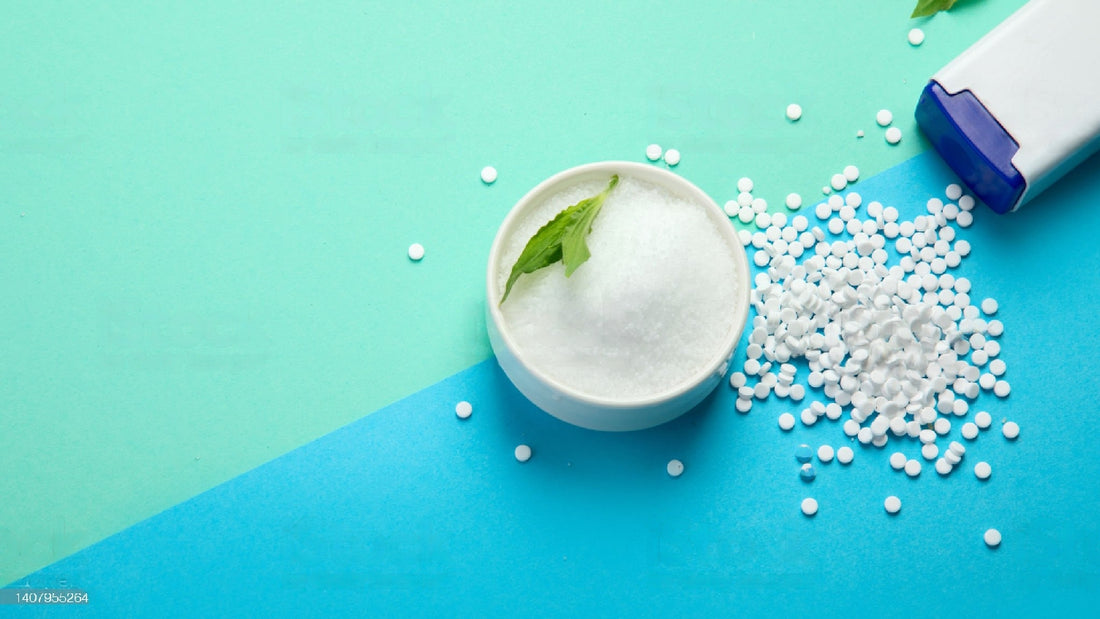Introduction
Artificial sweeteners are the most commonly used type of non-caloric sweetener in the U.S. and around the world. They're found in everything from candy to soda, so it's no surprise that people turn to them when they want to lose weight or keep their blood sugar stable. But do artificial sweeteners really help with these goals? It turns out there is a lot of conflicting science on this topic—and it may be time for us all to rethink our approach to sugar substitutes altogether.
The body fails to recognize artificial sweeteners.
Artificial sweeteners are not metabolized by the body. This means that they do not break down in the same way as natural sugars and carbohydrates, which are broken down into glucose or maltose.
Artificial sweeteners are not absorbed by the body either. In fact, they're absorbed at a rate that's slower than water (which is why they can cause bloating). Artificial sweetener molecules pass through our digestive systems without being digested or metabolized in any way! They just sit there until you eat something else whose calories can be used to break them down again--or get rid of them entirely through urination (if you've been drinking lots of diet soda).
If these substances were stored in any part of your body besides fat cells (which they aren't), then maybe we'd have some idea what happens when someone drinks too much diet soda; but since this doesn't happen with either artificial or natural sugars or carbs...we don't see any reason why there'd be any difference between how much energy people lose from eating sugary food versus drinking artificially flavored beverages like soda pop versus sports drinks like Gatorade."
Artificial sweetener companies are exempt from safety testing.
The FDA has the authority to regulate companies that make artificial sweeteners, but it doesn't. The FDA does not have the authority to regulate food additives or manufacturers of food products containing them. This means that while you may be able to buy a sugar-free soda at your local grocery store, there's no guarantee that it's actually safe for consumption--or even legal.
Artificial sweeteners are exempt from being tested for safety by the FDA because they are considered "generally recognized as safe" (GRAS) by both manufacturers and users alike. The only way we know whether or not a chemical is GRAS is if someone voluntarily tests it for themselves before putting their own body at risk by using it regularly (or even just once). But since no one does this type of testing on artificial sweeteners today, we don't know exactly how much harm they cause us over time--and what effects getting rid of them could have on our health!
Artificial sweeteners fail to satisfy our appetites.
Artificial sweeteners don't satisfy hunger. They don't add to your energy level, nor do they make you feel happy or healthy. They are not a substitute for real food; rather, they just mask the taste of real food. In order for us to feel satisfied with our meals we need certain nutrients such as protein and carbohydrates that come from whole foods like meat and vegetables in addition to vitamins and minerals like calcium or iron found in dairy products (or even dark green leafy vegetables).
Artificial sweeteners do not provide these essential nutrients so if you're using them as a substitute for eating fresh fruits & vegetables then this could be bad news!
Artificial sweeteners might alter appetite regulators in the brain and body.
Artificial sweeteners might be affecting your health in more ways than you realize.
While they're not a healthy substitute for sugar, artificial sweeteners can alter appetite regulators in the brain and body. They may cause weight gain, diabetes and high blood pressure, among other things. Studies have shown that people who consume high amounts of artificial sweeteners are more likely to develop heart disease or strokes (1).
There is limited research on artificial sweetener safety.
There is no research on the long-term effects of artificial sweeteners. This is because there are only a handful of studies that look at this, and they're all relatively short-term. This means it's hard to draw any definitive conclusions about how artificial sweetener use might affect your health in the long run.
There isn't much more than anecdotal evidence to go on either--and even then, it's not always reliable or complete enough for us to trust its claims as factually accurate representations of reality. For example: one study found that children who drank diet soda had higher blood pressure levels than those who didn't (but another study contradicted this finding). If you want extra assurance that what you're reading here isn't just some sort of conspiracy theory cooked up by someone who hates soda companies or something like that... well... sorry but we don't have any answers here!
Artificial sweeteners are not a healthy substitute for sugar.
Artificial sweeteners are not a healthy substitute for sugar. They do not provide the same health benefits as real sugar, and they have been linked to weight gain and other negative side effects.
There are many different types of artificial sweeteners available, including:
Until we have more research, it's a good idea to avoid calorie-free artificial sweeteners as much as possible.
Until we have more research, it's a good idea to avoid calorie-free artificial sweeteners as much as possible. The reason is that there are many different kinds of these artificial sweeteners, and some might be better for you than others. For example, saccharin (which is used in Sweet'N Low) has been shown to cause cancer in rodents at high doses; therefore, this type of product should be avoided at all costs.
Some people believe that all calories are created equal--that is, that an apple has exactly the same amount of energy as a doughnut or candy bar does--and therefore they'll use an artificial sweetener whenever possible because it doesn't contain any calories and thus won't add weight to their diet plan. However, this logic doesn't hold up under scrutiny: If you ate only apples throughout the day without any other food items then yes...you'd probably lose weight! But if there were something else available during each mealtime then eventually those extra calories would show up on your scale somewhere down the road...even though they didn't exist initially!
Conclusion
We hope this article has helped you understand what artificial sweeteners are and how they work in your body. We want to be clear: there is no one perfect diet for every person out there, and that's okay. But it can help to know which options might better suit your needs before jumping into any new lifestyle change—especially if that change involves eliminating something from your diet for health reasons!
The answer to this question is simple, artificial sweeteners are bad for you. They can cause headaches, muscle pain, diabetes and a number of other health problems.
Diabeat Plus Sugar is an all-natural, zero-calorie sweetener that gives you the sweetness you love without the harmful side effects!

